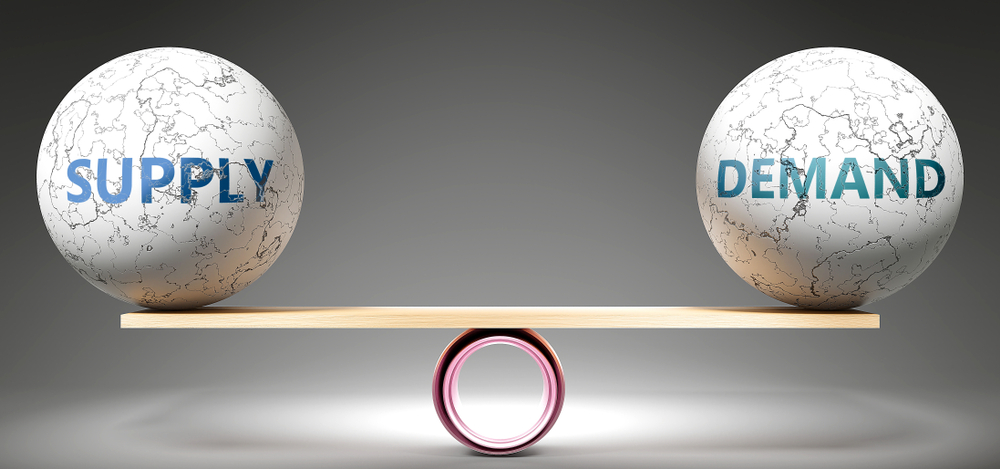Understanding about Economics
គន្លឹះសំខាន់
សេដ្ឋកិច្ចគឺជាវិទ្យាសាស្ត្រសង្គមដែលសិក្សាពីរបៀបដែលបុគ្គល អាជីវកម្ម រដ្ឋាភិបាល និងសង្គមបែងចែកធនធានដែលមានកម្រិត ដើម្បីបំពេញតម្រូវការរបស់ពួកគេ។
– សេដ្ឋកិច្ចមានសារៈសំខាន់ណាស់នៅក្នុងការបែងចែកធនធានឱ្យមានប្រសិទ្ធភាព ការណែនាំអំពីការសម្រេចចិត្តរបស់បុគ្គល និងរដ្ឋាភិបាល និងការបង្កើតគោលនយោបាយដែលដោះស្រាយបញ្ហាប្រឈមមុខនឹងសេដ្ឋកិច្ច។
– មីក្រូសេដ្ឋកិច្ច គឺជាផ្នែកមួយនៃសេដ្ឋកិច្ចដែលផ្តោតលើការសិក្សាពីស្ថានភាពសេដ្ឋកិច្ចរបស់បុគ្គល និងអន្តរកម្មនៅក្នុងទីផ្សារ។
– ម៉ាក្រូសេដ្ឋកិច្ច គឺជាផ្នែកសំខាន់មួយទៀតនៃសេដ្ឋកិច្ចដែលផ្តោតលើការសិក្សាអំពីដំណើរការ និងស្ថានភាពនៃសេដ្ឋកិច្ចទាំងមូល។
– សូចនាករសេដ្ឋកិច្ច គឺជារង្វាស់ដ៏សំខាន់ដែលផ្តល់នូវរូបភាពនៃស្ថានភាព និងដំណើរការទូទៅរបស់សេដ្ឋកិច្ច។
តើអ្វីទៅជាសេដ្ឋកិច្ច?
សេដ្ឋកិច្ចគឺជាវិទ្យាសាស្ត្រសង្គមដែលសិក្សាពីរបៀបដែលបុគ្គល អាជីវកម្ម រដ្ឋាភិបាល និងសង្គមបែងចែកធនធានដែលមានកម្រិត ដើម្បីបំពេញតម្រូវការរបស់ពួកគេ។ សេដ្ឋកិច្ចក៏ជាការសិក្សាអំពីរបៀបដែលមនុស្សធ្វើការជ្រើសរើសដើម្បីបំពេញនូវគោលដៅ និងបំណងប្រាថ្នារបស់ពួកគេ ដោយសារកង្វះខាតធនធាន។

សារៈសំខាន់នៃការយល់ដឹងពីសេដ្ឋកិច្ច
សេដ្ឋកិច្ចមានសារៈសំខាន់ណាស់នៅក្នុងការបែងចែកធនធានឱ្យមានប្រសិទ្ធភាព ការណែនាំអំពីការសម្រេចចិត្តរបស់បុគ្គល និងរដ្ឋាភិបាល និងការបង្កើតគោលនយោបាយដែលដោះស្រាយបញ្ហាប្រឈមមុខនឹងសេដ្ឋកិច្ច។ វាជួយយើងឱ្យយល់អំពីសក្ដានុពលទីផ្សារ ពាណិជ្ជកម្មសកល និងកត្តាដែលជំរុញកំណើនសេដ្ឋកិច្ច និងការបែងចែកប្រាក់ចំណូល។ លើសពីនេះទៅទៀត សេដ្ឋកិច្ចក៏បានប្រាប់យើងអំពីផលប៉ះពាល់បរិស្ថាននៃសកម្មភាពសេដ្ឋកិច្ច និងការយល់ដឹងអំពីឥទ្ធិពលសេដ្ឋកិច្ចមកលើការសម្រេចចិត្ត។ ជាងនេះទៅទៀត សេដ្ឋកិច្ចក៏បានជួយពលរដ្ឋក្នុងការសម្រេចចិត្តប្រកបដោយប្រសិទ្ធភាព ជំរុញភាពជាសហគ្រិន និងការច្នៃប្រឌិត និងដើរតួនាទីយ៉ាងសំខាន់ក្នុងការគ្រប់គ្រងវិបត្តិ និងការស្តារសេដ្ឋកិច្ចឡើងវិញ។

មីក្រូសេដ្ឋកិច្ច
មីក្រូសេដ្ឋកិច្ចគឺជាផ្នែកមួយនៃសេដ្ឋកិច្ចដែលផ្តោតលើការសិក្សាពីស្ថានភាពសេដ្ឋកិច្ចរបស់បុគ្គល និងអន្តរកម្មនៅក្នុងទីផ្សារ។ មីក្រូសេដ្ឋកិច្ចជួយពិនិត្យមើលទៅលើអាកប្បកិរិយារបស់អ្នកប្រើប្រាស់ម្នាក់ៗ ក្រុមហ៊ុន និងគ្រួសារ ព្រមទាំងរបៀបដែលពួកគេធ្វើការសម្រេចចិត្តអំពីការបែងចែកធនធាន។ គោលគំនិត និងប្រធានបទសំខាន់ៗក្នុងមីក្រូសេដ្ឋកិច្ចរួមមាន៖ ការផ្គត់ផ្គង់ និងតម្រូវការ, រចនាសម្ព័ន្ធទីផ្សារ, អាកប្បកិរិយាអ្នកប្រើប្រាស់, យុទ្ធសាស្រ្តអ្នកផលិត, ការបរាជ័យនៅក្នុងទីផ្សារ, សុខុមាលភាពសេដ្ឋកិច្ច, ទីផ្សារការងារ, ទ្រឹស្តីហ្គេម (Game theory)។
មីក្រូសេដ្ឋកិច្ចគឺជាឧបករណ៍សេដ្ឋកិច្ចដ៏សំខាន់មួយក្នុងការយល់ដឹងអំពីអាកប្បកិរិយារបស់បុគ្គល និងដំណើរការនៃទីផ្សារជាក់លាក់។ វាផ្តល់នូវមូលដ្ឋានគ្រឹះសម្រាប់ធ្វើការសម្រេចចិត្តអំពីការបែងចែកធនធាន ការកំណត់តម្លៃ ការផលិត និងការប្រើប្រាស់នៅកម្រិតមីក្រូ ហើយវាផ្តល់នូវការយល់ដឹងដ៏មានតម្លៃសម្រាប់អាជីវកម្ម អ្នកបង្កើតគោលនយោបាយ និងអ្នកប្រើប្រាស់ផងដែរ។
ម៉ាក្រូសេដ្ឋកិច្ច
ម៉ាក្រូសេដ្ឋកិច្ច គឺជាផ្នែកសំខាន់មួយទៀតនៃសេដ្ឋកិច្ចដែលផ្តោតលើការសិក្សាអំពីដំណើរការ និងស្ថានភាពនៃសេដ្ឋកិច្ចទាំងមូល។ ផ្ទុយពីមីក្រូសេដ្ឋកិច្ច ម៉ាក្រូសេដ្ឋកិច្ចគឺមើលទៅស្ថានភាពសេដ្ឋកិច្ចទាំងមូល។ វារួមបញ្ចូលនូវចំណុចសំខាន់ៗ រួមមាន៖ ផលិតផលក្នុងស្រុកសរុប (GDP), អតិផរណា, ភាពអត់ការងារធ្វើ, កំណើនសេដ្ឋកិច្ច, គោលនយោបាយសារពើពន្ធ, គោលនយោបាយរូបិយវត្ថុ, តុល្យភាពនៃការទូទាត់, អត្រាប្តូរប្រាក់, វដ្តអាជីវកម្ម, គោលនយោបាយសេដ្ឋកិច្ច, សូចនាករសេដ្ឋកិច្ច។
ម៉ាក្រូសេដ្ឋកិច្ចមានសារៈសំខាន់សម្រាប់ការយល់ដឹងអំពីសុខភាពទូទៅ និងអាកប្បកិរិយានៃសេដ្ឋកិច្ច ក៏ដូចជាសម្រាប់ការរៀបចំ និងអនុវត្តគោលនយោបាយដែលមានគោលបំណងសម្រេចបាននូវស្ថិរភាពសេដ្ឋកិច្ច កំណើនប្រកបដោយចីរភាព និងការលើកកម្ពស់កម្រិតជីវភាពសម្រាប់ប្រជាជនរបស់ប្រទេសមួយ។

តើមានសូចនាករសេដ្ឋកិច្ចសំខាន់ៗអ្វីខ្លះ?
សូចនាករសេដ្ឋកិច្ច គឺជារង្វាស់ដ៏សំខាន់ដែលផ្តល់នូវរូបភាពនៃស្ថានភាព និងដំណើរការទូទៅរបស់សេដ្ឋកិច្ច។
ខាងក្រោមនេះ គឺជាសូចនាករសេដ្ឋកិច្ចសំខាន់ៗមួយចំនួនដូចជា៖
ផលិតផលក្នុងស្រុកសរុប (GDP), អត្រាគ្មានការងារធ្វើ, អត្រាអតិផរណា, សន្ទស្សន៍តម្លៃទំនិញប្រើប្រាស់ (CPI), សន្ទស្សន៍តម្លៃអ្នកផលិត (PPI), ជញ្ជីងពាណិជ្ជកម្ម, ការលក់លក់រាយ, ផលិតកម្មឧស្សាហកម្ម, សន្ទស្សន៍ទំនុកចិត្តអ្នកប្រើប្រាស់, សន្ទស្សន៍ទំនុកចិត្តអាជីវកម្ម, សូចនាករទីផ្សារលំនៅឋាន, និងអត្រាការប្រាក់ជាដើម។
សូចនាករសេដ្ឋកិច្ចសំខាន់ៗទាំងនេះត្រូវបានត្រួតពិនិត្យ និងវិភាគជាទៀងទាត់ដោយអ្នកបង្កើតគោលនយោបាយ អ្នកប្រកបអាជីវកម្ម និងអ្នកសេដ្ឋកិច្ច ដើម្បីវាយតម្លៃពីស្ថានភាពសេដ្ឋកិច្ច ធ្វើការសម្រេចចិត្តប្រកបដោយត្រឹមត្រូវ និងប្រមើលមើលពីនិន្នាការសេដ្ឋកិច្ចដែលមានសក្តានុពល។
| English Version |
Key takeaway
– Economics is the social science that studies how individuals, businesses, governments, and societies allocate their limited resources to satisfy their needs and wants.
– Economics is crucial for allocating scarce resources efficiently, guiding decision-making for individuals and governments, and shaping policies that address economic challenges.
– Microeconomics is a branch of economics that focuses on the study of individual economic units and their interactions within specific markets.
– Macroeconomics is a branch of economics that focuses on the study of the overall performance and behavior of an entire economy.
– Economic indicators are statistical data points that provide insights into the overall health and performance of an economy.
What is Economics?
Economics is the social science that studies how individuals, businesses, governments, and societies allocate their limited resources to satisfy their needs and wants. It is the study of how people make choices to fulfill their goals and desires given the scarcity of resources.

Importance of economic
Economics is crucial for allocating scarce resources efficiently, guiding decision-making for individuals and governments, and shaping policies that address economic challenges. It helps us understand market dynamics, global trade, and factors that drive economic growth and income distribution. Additionally, economics informs us about the environmental impact of economic activities and behavioral insights that influence choices. Lastly, economic literacy empowers citizens to make informed choices, fosters entrepreneurship, and innovation, and plays a critical role in crisis management and recovery.

Microeconomics
Microeconomics is a branch of economics that focuses on the study of individual economic units and their interactions within specific markets. It examines the behavior of individual consumers, firms, and households, as well as how they make decisions about the allocation of resources. Key concepts and topics in microeconomics include: supply & demand, market structures, consumer behavior, producer theory, market failures, welfare economics, labor economics, and game theory.
Microeconomics is instrumental in understanding the behavior of individual economic agents and the functioning of specific markets. It provides a foundation for making decisions about resource allocation, pricing, production, and consumption at the micro-level, and it offers valuable insights for businesses, policymakers, and consumers.
Macroeconomics
Macroeconomics is a branch of economics that focuses on the study of the overall performance and behavior of an entire economy. Unlike microeconomics, which examines individual economic units and specific markets, macroeconomics looks at the economy as a whole. It encompasses a wide range of topics and key concepts, including Gross Domestic Product (GDP), Inflation, Unemployment, Economic growth, Fiscal policy, Monetary policy, Balance of payments, Exchange rates, Business cycles, Economic policies, and Economic indicators.
Macroeconomics is essential for understanding the overall health and behavior of an economy, as well as for designing and implementing policies that aim to achieve economic stability, sustainable growth, and improved living standards for a nation’s population.

What are economic indicators?
Economic indicators are statistical data points that provide insights into the overall health and performance of an economy. They help analysts, policymakers, and businesses assess economic trends, make informed decisions, and gauge the impact of various factors on the economy.
Here are some of the most important key economic indicators:
Gross Domestic Product (GDP), Unemployment Rate, Inflation Rate, Consumer Price Index (CPI), Producer Price Index (PPI), Balance of Trade, Retail Sales, Industrial Production, Consumer Confidence Index, Business Confidence Index, Housing Market Indicators, Interest Rates.
These key economic indicators are regularly monitored and analyzed by policymakers, businesses, and economists to assess economic conditions, make informed decisions, and anticipate potential economic trends.

